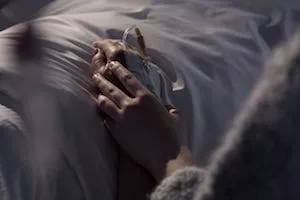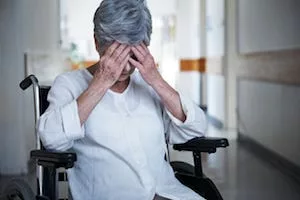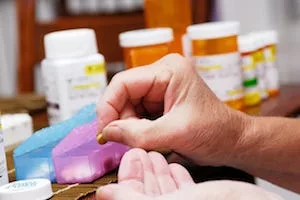Placing a loved one in a nursing home is never an easy decision, but we often do it so mom or dad can get the care they need. One thing you should never have to fear is a nursing home and its employees treating your loved one poorly. It is devastating for a family to hear that their loved one has been injured or killed in a place that they trusted. If that happens, you need attorneys in your corner who know how to hold negligent nursing home operators accountable for their actions.
At The Collins Law Firm, our attorneys spend every day fighting for the most vulnerable among us, who have been injured or killed by someone else's carelessness. Our lawyers have decades of experience representing the victims of neglect and abuse. We fight for you, so that your family can take the time to heal. Call us at (630) 527-1595 or fill out our contact form to arrange a FREE CONSULTATION today. There is no obligation and the call is confidential. We will discuss your potential case, explain your legal options, and help you and your loved one feel safe again.
How Serious a Problem is Elder Abuse in Nursing Homes?
What are the Causes of Nursing Home Abuse or Neglect?
What are the Different Types of Elder Abuse and Neglect?
What Signs of Elder Abuse/Neglect Should You Look for?
What Kinds of Nursing Home Abuse and Neglect Cases Do We Handle?
How Can You Prevent Your Loved One From Becoming a Victim of Nursing Home Abuse or Neglect?
What Should You Do if You Suspect or See Your Loved One Being Abused?
How Does the Law Protect Nursing Home Residents From Abuse?
What are Your Rights under the Illinois Nursing Home Care Act?
What are the Standards of Care Required by Law of Nursing Homes?
Why Don’t the Elderly Report Abuse, and What Can You Do About It?
When is It Appropriate to Sue a Nursing Home?
Who Can Bring a Lawsuit for Elder Abuse or Neglect?
What Can the Attorneys at The Collins Law Firm Do for You?
How to Report Nursing Home Abuse or Neglect?

Elder abuse is a large and growing problem in the United States. According to recent research, about 10% of seniors experience elder abuse, with more than 2 million cases of elder abuse reported every year. The problem is even more prevalent among the elderly who live in nursing homes. Nursing home abuse occurs at every type of facility, and the statistics are shocking. Moreover, the problem continues to increase as more elderly citizens enter the system. In addition, when you consider that the elderly are the least likely demographic to report abuse, the prevalence of abuse is very likely even greater than we know. The following are some recent statistics on elder abuse at nursing homes:
In addition, statistics show that the size of the resident population in a long term care facility is a risk factor for elder abuse. The greater the number of residents, the greater the risk. Shockingly, nursing homes in Illinois with more than 100 patients are 39% more likely to jeopardize residents’ safety than facilities with 50-100 patients, and 127% more likely to do so than homes with less than 50 residents.

It is very important to be able to spot abuse in nursing homes in order to protect your loved one, but what should you be on the lookout for? Here are some common signs of elder abuse.

At The Collins Law Firm, we represent nursing home clients who have been the victims of all types of financial, physical or mental abuse as well as those who have suffered as a result of neglect. Some of the more common types of abuse cases we encounter are:
Wrongful Death Sadly, in the United States, it is estimated that 5,000 nursing home residents die each year as a result of abuse or neglect. Serious falls, physical abuse, improper medication, lack of timely and proper medical treatment, malnutrition and dehydration, infection and even bedsores can result in an untimely death. Oftentimes a minor or initially innocuous problem becomes a deadly condition due to failure to detect, manage and treat the problem. No patient at a nursing home and no family should ever have to go through this.
Pressure Sores These sores, also called decubitus ulcers or bedsores, result from inadequate care and are receiving growing attention because of their prevalence. In Illinois, almost 20% of nursing home residents have pressure sores of stage 2 or higher on a scale of 4. Bedsores occur when staff fail to move and reposition patients with limited mobility on a regular basis. As a result, the blood supply to tissue is interrupted and the flesh dies. This causes pain and disability and can even lead to an open wound. When this happens, even more serious complications such as sepsis, gangrene, amputation, and even death can result. It is critical that you insist that the nursing home begin treatment of your loved one’s pressure sores immediately.
Infections It is estimated that as many as one to three million nursing home residents in the United States suffer from infections each year and as many as 380,000 residents die due to infection. This is often due to nursing homes failing to follow proper infection control procedures or providing substandard care to vulnerable elderly residents. Common infections include pneumonia, influenza, urinary tract infections, skin and soft tissue infections, and gastrointestinal infections. There are many steps that nursing homes can take to prevent infection, but, sadly, the staff at many facilities do not consistently follow infection prevention practices, even simple ones such as handwashing or wearing gowns and masks around infectious patients.
Preventable Falls at nursing homes occur regularly and repeatedly. In fact, the rate of falls in nursing homes is double that for the same age group living outside of long-term care facilities. The issue is a very serious one according to the following statistics from the Centers for Disease Control:
Falls in nursing homes can result in death, injury, disability, functional decline, depression and reduced quality of life for your loved one. It is extremely important to be vigilant for conditions that might increase the chances of a serious fall.
Negligent Care Inadequate care can result in all sorts of injuries to a resident. Neglect can cause incontinence, malnutrition and weight loss, choking, clogged breathing tubes, dehydration, and a decline in the patient’s quality of life. Neglect can also be responsible for bedsores, infection, illness and a deterioration in a patient’s condition due to lack of treatment or proper medication and a failure to coordinate care. Inadequate supervision can lead to burns, falls, and the patient wandering off. In addition, negligent care can also result in patients being over or under medicated, or being improperly treated with antipsychotics or sedatives to make them "easier to handle". Many of these conditions dramatically impact a patient’s everyday quality of life, and if left untreated, can lead to serious injury, disability or even death.

Overmedication Sadly, there are nursing homes who overmedicate their residents on a regular basis because it makes them easier to handle, or because of inadequate staffing. Sometimes the overmedication is an unintentional mistake made by an overstressed, overworked employee. Other times the patient is overmedicated intentionally because they are aggressive, emotional or uncooperative. Keeping a patient sedated for long periods of time for any reason is called "chemical restraint" and can be very dangerous. Here are some facts about overmedicating:
If you observe that a large percentage of patients at a nursing home appear to be on antipsychotic drugs, this may be cause for alarm. It may be a sign that the facility does not take precautions against overmedicating or has a regular practice of overmedicating. If your loved one seems to be acting differently, ask to see a log of his/her medications. Ask about any medications you are not familiar with; ask if they are sedatives or antipsychotics; and if so, why they are being administered, for how long and when the treatment will be over.
If the facility can give no credible, medical reason for your loved one to be medicated, speak to a doctor and insist that he or she be taken off any unnecessary sedatives or antipsychotics.
At The Collins Law Firm we help you through a difficult situation by navigating the legal issues involved, providing your loved ones with the care and safety they deserve, and fighting for justice for your family.

Nursing homes are supposed to help our loved ones to live their lives in comfort and safety. All too often this is not the case and our loved ones suffer at the hands of people who are there to care for them. When this happens, the seasoned lawyers and legal team at The Collins Law Firm will work closely with you and your loved one to uncover the facts surrounding how an injury occurred and work toward a favorable settlement or lawsuit against the facility. More specifically, our lawyers can hold the nursing home accountable by:
We invest the time and resources necessary to assemble every critical piece of your case so that we can secure the most favorable outcome for you. Our experienced lawyers take care of everything so that you and your loved one can concentrate on recovery while we fight to get you justice.
Call The Collins Law Firm Today for a Free Evaluation of Your Nursing Home Abuse Case
If your loved one is being mistreated at a nursing home, we invite you to call us today. With more than 20 years of experience in personal injury cases, including many nursing home neglect and abuse cases, our attorneys know how to prove the wrongful conduct that caused your loved one's injuries and recover full compensation for those injuries.
Contact The Collins Law Firm at (630) 527-1595 (dial extension 221 for Shawn Collins, 226 for Edward Manzke or 236 for John Risvold) for a free evaluation of your case, if you suspect that your loved one is the victim of nursing home abuse or neglect. We will not only help you pursue the maximum compensation, but we will ensure your loved one gets the care he or she deserves.
"*" indicates required fields











Chris G. was very professional and helpful!